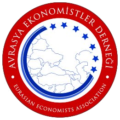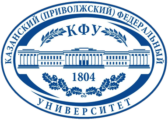
International Conference on Eurasian Economies
9-11 September 2015 – Kazan, RUSSIA
Paper detail
Paper ID : 1358
Status : Paper published
Language : English
Topic : Sectoral Analyses
Presenter: Prof. Dr. Mustafa Koyuncu
Session : 7A Sectoral Analysis
Gender Differences in Work Experiences and Work and Learning Outcomes among Employees in the Manufacturing Sector in Turkey: An Exploratory Study
Gender Differences in Work Experiences and Work and Learning Outcomes among Employees in the Manufacturing Sector in Turkey: An Exploratory Study
- Prof. Dr. Mustafa Koyuncu (Çanakkale Onsekiz Mart University, Türkiye)
- Asst. Prof. Dr. Fusun Tekin Acar (Erciyes University, Türkiye)
- Prof. Dr. Ronald J Burke (York University, Canada)
- Mr. Kadife Koyuncu (Çanakkale Onsekiz Mart University, Türkiye)
Abstract
This study examined gender differences in work experiences and work outcomes among 215 male and 46 female employees working in the textile and furniture sectors in Turkey. Data were collected from 261 employees, a 65 percent response rate, using anonymously completed questionnaires. Respondents were mostly male, worked full-time, had relatively short job and firm tenures, generally held jobs involving some supervisory responsibilities, and worked 41 to 50 hours per week in fairly large firms. All measures used here had been used and validated previously by other researchers. Work experiences included perceptions of supervisor empowering behaviors; outcomes included job satisfaction, affective commitment, work engagement, engaging in voice behaviors, and intent to quit. Learning related outcomes included learning opportunities and self-rated employability. There were small differences in departments in which men and women worked with a slightly higher percentage of men in production and a slightly lower percentage of men in accounting, human resource management and marketing. Consistent with earlier work, significant gender differences were found on several personal demographic and work situation characteristics. Women were younger, less likely to be married, were more highly educated, were at lower organizational levels, had less job and organizational tenure. Males and females had similar perceptions of their supervisor’s empowering behaviors, their own levels of psychological empowerment, similar learning opportunities and levels of self-rated employability and on most work outcomes (e.g, job satisfaction, organizational commitment, intent to quit).
JEL codes: L84, M12, J81
Koyuncu, Mustafa, Acar, Fusun Tekin, Burke, Ronald J, Koyuncu, Kadife (2015). "Gender Differences in Work Experiences and Work and Learning Outcomes among Employees in the Manufacturing Sector in Turkey: An Exploratory Study" in Proceedings of International Conference of Eurasian Economies 2015, pp.150-159, Kazan, RUSSIA.
DOI: https://doi.org/10.36880/C06.01358





